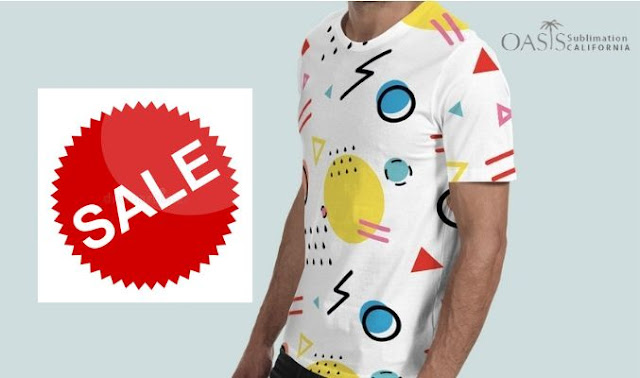Sublimation is the direct passage of
materials from a solid state to a gaseous one without going through a liquid
state. The dye sublimation technique employs sublimation technology. Heat and
pressure are given to a solid, causing an endothermic reaction that converts it
to a gas without going through the liquid phase. As a result, the ink (dye)
solids become gaseous and are absorbed into the cloth or substrate before
solidifying again. This process, however, was eventually shown to be diffusion
rather than sublimation.
The sublimation printing method
This printing method necessitates complex,
specialized equipment that precisely gauges and applies gaseous ink to the
cloth. After selecting your design, you print it on special paper with a
sublimation printer. To transfer the dye onto the cloth, you must use this
particular sublimation paper. Using a heat press, the paper is then pushed
against the fabric/material with great heat and pressure. The dye is then
converted into a gas before being injected into the cloth. The process's high
heat opens the pores of the cloth, and the applied pressure cools it down,
restoring the dye to its solid state. After the cloth has cooled, the paper is
carefully pulled away, leaving the design on the fabric.
T-shirt sublimation printing
T-shirt printing using sublimation is a wonderful
option. It makes prints that are extremely durable and can resist some washing.
They also appear to be clean and a part of the cloth. They don't appear like
stickers in the manner that other printing processes' outputs do.
Fabric with sublimation printing
Despite its advantages, this printing
technology is not suitable for cotton t-shirts. It does, however, work well
with polyester and polyester blend clothing. Due to their gaseous state, the
polymers in this fabric quickly open up when heated. When the cloth cools
following the printing process, the dye penetrates via the open pores and
becomes trapped within. When applied to cotton, the fabric integrity is
compromised, and the picture is not permanent. Nylon, rayon, spandex, and
acrylic are among other textiles that may be utilized for this printing
procedure. Cotton is frequently incorporated into these t-shirts to provide
comfort to the user.
Design for sublimation
printing
The design versatility is one of the finest
aspects of this type of printing. In the design phase, colors may be blended to
create complicated prints. The involvement of a printer allows the design to be
produced. This technology allows for the creation of complicated logos and
images. As a result, it is suitable not only for wholesale sublimated t-shirts, but
also for other goods. Because the fabric is virtually always synthetic,
sportswear is an excellent option for this printing technology.
Business owners and retailers, if you want to bulk purchase wholesale sublimated t-shirts for your stock, then contact a reputed manufacturer ASAP.




